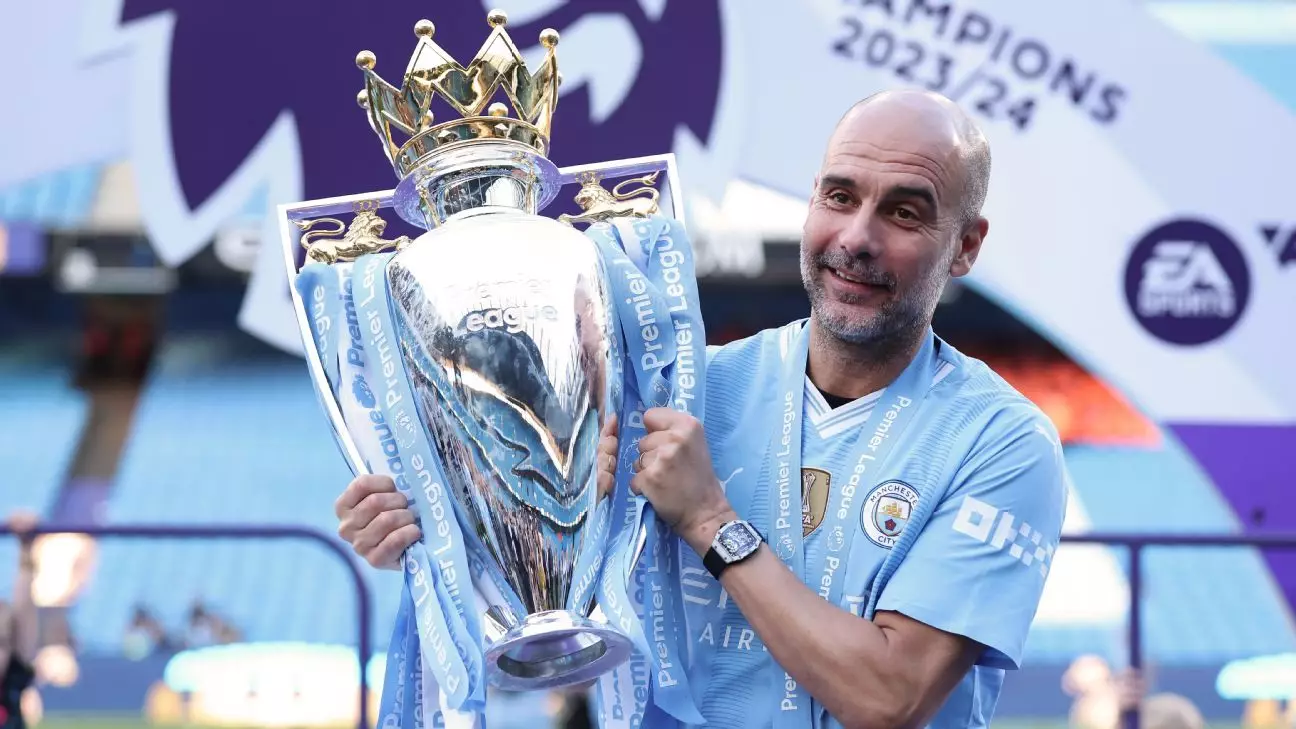In the realm of football management, few figures have exerted as much influence as Pep Guardiola. Currently at the helm of Manchester City, his tenure has been marked by an unprecedented level of success, with the club clinching the Premier League title six out of the last seven seasons. This dominance sharply contrasts with the plight of Manchester United, who have floundered since Sir Alex Ferguson’s departure in 2013. Guardiola’s recent comments shed light on the contrasting paths of these two storied clubs, addressing the concerns of fans regarding City’s potential decline following his exit.
Guardiola was candid in reflecting on Manchester United’s fortunes, stating, “I don’t know what happened [at United].” His emphasis on the repercussions of a single managerial departure speaks volumes about the stability he feels exists within Manchester City. Unlike United, City’s momentum is not wholly tethered to one individual. The trajectory of a club should ideally transcend managerial changes, a principle Guardiola believes is integral for long-term success. He confidently assured supporters that the management team knows what to do, indicating a level of preparedness that encourages optimism about the club’s future beyond his direct influence.
While Guardiola’s contract is set to expire at the end of the current season, speculation abounds regarding his next steps. Sources suggest that a decision on his future could be made between the upcoming international break and the New Year. However, City’s management seems to be adopting a patient approach, refraining from imposing undue pressure on Guardiola, which illustrates a broader understanding of the game’s complexities. Such a stance not only showcases respect for Guardiola’s current role but also reinforces the idea that the club has systems in place to navigate transitions seamlessly.
A key aspect of Guardiola’s reassurance lies in the robustness of Manchester City’s organizational structure. With the announcement of Txiki Begiristain’s departure and the appointment of Hugo Viana as his successor, it becomes evident that the club is not only aware of potential challenges but is also proactively addressing them. Guardiola stressed, “The club is well run and the structure is good,” underscoring an essential principle that successful football operations rely on collective strength rather than the whims of one individual. This mindset, where solid foundations allow for adaptability and growth, is critical for any sporting institution that hopes to maintain its competitive edge.
Ultimately, Pep Guardiola’s assertions carry substantial weight amid the whirlwind of managerial speculation. His belief in Manchester City’s resilience and operational stability offers a refreshing narrative—a departure can lead to evolution rather than collapse. As the club gears up for whatever changes may come, one can rest assured that Guardiola’s imprint will endure, bolstering the ethos that formulating a successful football narrative extends well beyond any single player or manager. The sky remains the limit for Manchester City, regardless of who occupies the managerial position at the Etihad Stadium.
